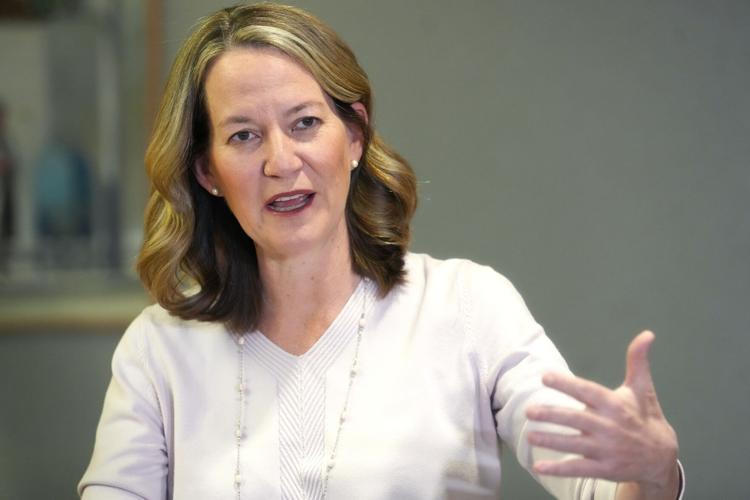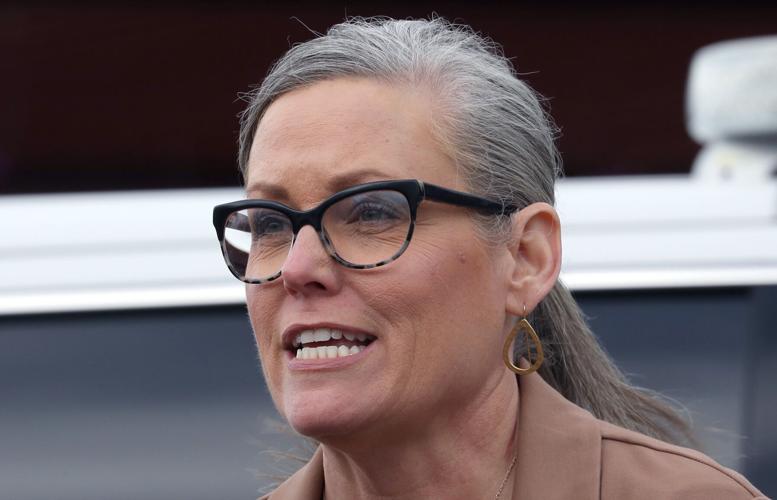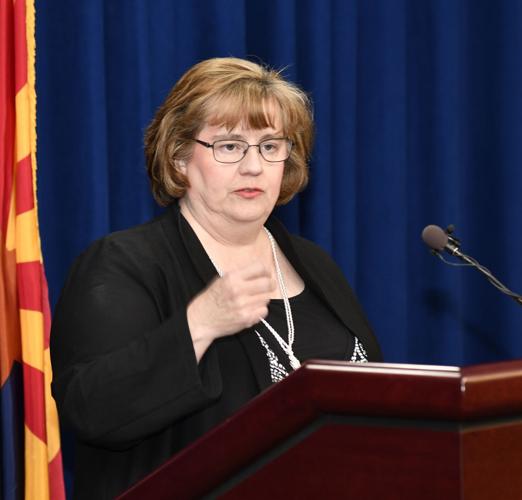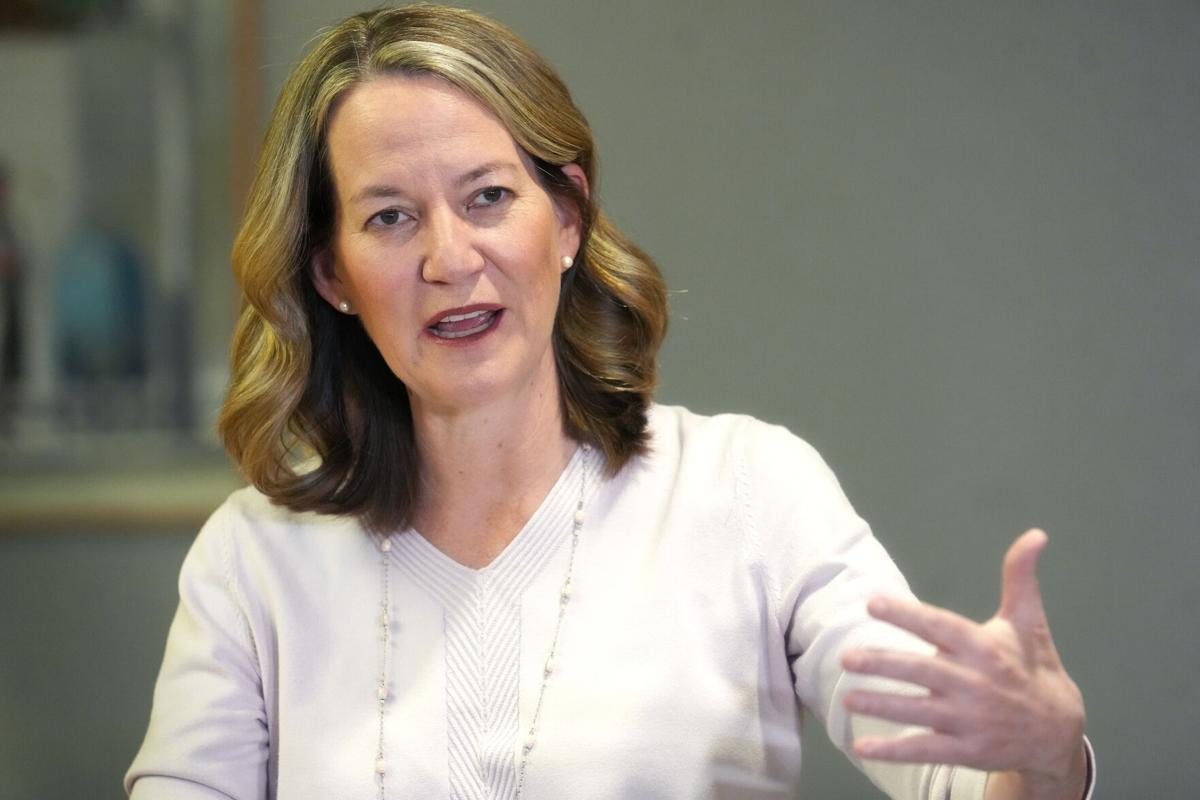She won’t use the word decriminalization.
But Attorney General Kris Mayes made it clear in an extensive interview with Capitol Media Services that under her watch, no doctor or medical professional will be prosecuted in Arizona for performing an abortion.
A new executive order by Gov. Katie Hobbs gives Mayes total say over enforcement of all criminal laws that govern the procedure. County attorneys are stripped of their authority to decide whether to bring charges.
Mayes and Hobbs, both Democrats, were elected in November to four-year terms.
In signing the executive order June 23, Hobbs said she wanted to be sure there is consistent enforcement among the 15 counties amid legal wrangling over which of two competing state laws restricting abortion would be enforced: One banning all abortions except to save the life of the mother and the other allowing them through the 15th week of pregnancy.
That dispute is playing out at the Arizona Supreme Court.
But Mayes confirmed she is taking all prosecutorial power over abortion laws away from the 15 county attorneys over those two laws, as well as all other abortion laws, including one that makes it a crime to terminate a pregnancy because of the race or gender of the fetus. Another criminalizes abortions in cases where the sole reason a woman seeks to terminate a pregnancy is because of a genetic defect.
Late-term abortions, those after viability of the fetus, have always been illegal under Arizona law, even after the U.S. Supreme Court ruled in Roe v. Wade in 1973 that women had a constitutional right to terminate a pregnancy. The high court overturned that ruling last year.
Asked specifically whether she would pursue prosecutions in late-term abortions, Mayes responded, “I think the premise of your question is a red herring.”
“You’re talking about a hypothetical that almost never happens,’’ she said. “And when it happens it is almost always a medical emergency,’’ for which she said terminating the pregnancy is allowed under the disputed law permitting abortions through the 15th week of pregnancy.
‘Not a place for gov’t intervention’
A 2011 state law makes it a felony, punishable by up to seven years in prison, for a doctor to terminate a pregnancy “knowing that the abortion is sought based solely on the sex or race of the child or the race of the parent of that child.’’
A federal judge dismissed a challenge to it, saying he would not consider it until there was an actual woman who was denied an abortion under the law. To date there is no record of such a case.
More recently, a different federal judge declined to block enforcement of a 2021 Arizona law that carries a one-year prison term for a doctor to terminate a pregnancy if the woman is seeking the procedure because of a fetal genetic defect. That law also allows the father of an unborn child who is married to the mother to file suit on behalf of that child for violations of the law, or for the parent of an unmarried minor to take such legal action.
While that challenge is pending, Mayes has declined to defend the law. The federal judge has since allowed Republican legislative leaders to step in in her place to mount a defense.
“You understand what my position on abortion is, which is this is not a place for government intervention,’’ Mayes told Capitol Media Services. “You also understand that I believe that prosecutorial resources should not be spent on trying to put doctors in jail.’’
Hobbs, in issuing the executive order, shares those positions, Mayes said.

Arizona governor Katie Hobbs answers a question during a press conference with Department of Homeland Security secretary Alejandro Mayorkas at the Mariposa Port of Entry, in Nogales on March 21.
Still, Mayes declined to call it decriminalization of abortion laws.
“I don’t know that I accept your terminology,’’ she said. “But I have been clear that we are not going to prosecute doctors and women in the state of Arizona for abortion, period.’’
The part about prosecuting women, however, is a red herring of its own: State lawmakers voted two years ago to repeal statutes that made women who sought or obtained an abortion criminally liable.
Says order is legal, has precedent
Mayes says the governor’s order is legal, citing a statute that gives the attorney general “supervisory powers’’ over county attorneys.
More specifically, Mayes is relying on a state law that says the attorney general, at the direction of the governor, can prosecute in any proceeding in state count in which the state is a party or has an interest.
There is nothing in that provision that at the same time removes the prosecutorial authority of elected county attorneys, but Mayes said that’s inherent.
“County attorneys would be prosecuting under state law,’’ she said. “And so this is essentially the governor and I centralizing the prosecution of state law where it belongs, in this matter, under the Attorney General’s Office.’’
She sidestepped the question of whether that allows her, at the direction of the governor, to wrest control from county attorneys the prosecution of any law based on a claim of ensuring equal enforcement among all counties.
“What I would say to that is, this is not something that the governor and I took lightly,’’ she said. “And it is also something that I think should be rarely utilized. And I think this was one of those instances where it was very appropriate and necessary to invoke this statute and for these potential prosecutions to be centralized under one roof.”
Mayes also said there is a precedent for Hobbs’ action.
It goes back nearly half a century, to charges brought against John Harvey Adamson, who lured Arizona Republic reporter Don Bolles to a hotel in 1976 with the promise of a news tip. A bomb exploded under the reporter’s car and he died 11 days later.
Raul Castro, who was governor at the time, directed Attorney General Bruce Babbitt to take over the prosecution from Maricopa County Attorney Don Harris.
Critic: Unilateral control is concerning
But Rachel Mitchell, the Republican current Maricopa County attorney, said what’s missing from Mayes’ precedent is context.

Maricopa County Attorney Rachel Mitchell says she and other county attorneys are looking at possible litigation against Attorney General Kris Mayes for taking unilateral control over an entire category of potential cases.
A judge had declared a mistrial in the first bid to prosecute Adamson, an action Mitchell said was caused by public statements made by Harris.
“Only then did the attorney general ask the governor to allow the Attorney General’s Office to prosecute the case,’’ Mitchell said.
Babbitt, in an interview with Capitol Media Services, confirmed the events, including the concerns about undermining the possibility of a conviction if Harris was left in charge of the prosecution.
Under Babbitt’s office, Adamson was convicted and sentenced to life in prison, though his sentence was reduced after he agreed to testify against others. He eventually served 20 years and was released in 1996.
What’s different here, Mitchell said, is that Hobbs, by executive order, removed not just one case but an entire category of potential offenses — there is currently no one accused of violating any abortion laws — from the purview of locally elected county attorneys. Mitchell said that’s why she and other county attorneys are looking at possible litigation.
She also said that while this order is about abortion, the precedent Hobbs and Mayes are setting would allow a future governor to take unilateral control over entire categories of cases to decide which will be pursued, regardless of whether state law has been changed.
Mitchell said that could lead, on one extreme, to deciding to target police officers for prosecution; to, on the other extreme, making a policy decision not to bring charges against people accused of retail theft.
Mayes brushed aside the question, saying this should be seen only in the context of abortion laws. She also the action by Hobbs and herself should not be a surprise to anyone who was paying attention during the 2022 campaign in which both were elected.
“It’s, I think, the culmination of our collective promise to the people of Arizona to defend their fundamental right to make their own private medical decisions without governmental interference,’’ she said.
Ahead of the one year anniversary of the Supreme Court’s decision to overturn Roe v. Wade, an NBC News poll reported 61% of Americans disapprove of it. Nearly 80% of female voters ages 18-49, two-thirds of suburban women, 60% of independents and even a third of Republican voters say they disapprove. Veuer’s Maria Mercedes Galuppo has the story.







